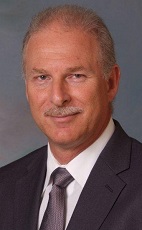
The hotel community continues to embrace sustainable development as a means not only to protect our environment, but also to optimize efficiency, realize cost savings, enhance guest satisfaction, improve employee morale, and manage investor expectations. Despite the lack of universally accepted metrics, the leading chains have incorporated eco-friendly policies, procedures, programs and training into their operations - both internally and externally - and their successes have been impactful and dramatic. In addition to more standard implementations such as LED lighting, waste recycling, reusing guest linens, and low-flow water regulators, some hotels have adopted more far-reaching solutions - commitment to the use of renewable energy; use of eco-labeled products; reduction of paper usage; purchasing of locally sourced and seasonal produce; ongoing measurement of carbon emissions; monitoring and analyzing energy consumption, the selection of suppliers and sub-contractors based on their own commitment to protect the environment; and compliance with all international environmental design standards. Remarkably, this comprehensive approach has resulted in enormous savings for some hotel operations. One major chain is projecting that it will realize US$1 billion in savings across the company's portfolio in less than 10 years. In addition, sustainability has become an important factor for guests when choosing a hotel. They want to know that a hotel has made a commitment to sustainable practices, and they expect honest and transparent communication about what steps a hotel is taking to produce a smaller carbon footprint. The May issue of the Hotel Business Review will document how some hotels are integrating eco-friendly practices into their operations and how they and the environment are benefiting from them.





 The hotel community continues to embrace sustainable development as a means not only to protect our environment, but also to optimize efficiency, realize cost savings, enhance guest satisfaction, improve employee morale, and manage investor expectations. Despite the lack of universally accepted metrics, the leading chains have incorporated eco-friendly policies, procedures, programs and training into their operations - both internally and externally - and their successes have been impactful and dramatic. In addition to more standard implementations such as LED lighting, waste recycling, reusing guest linens, and low-flow water regulators, some hotels have adopted more far-reaching solutions - commitment to the use of renewable energy; use of eco-labeled products; reduction of paper usage; purchasing of locally sourced and seasonal produce; ongoing measurement of carbon emissions; monitoring and analyzing energy consumption, the selection of suppliers and sub-contractors based on their own commitment to protect the environment; and compliance with all international environmental design standards. Remarkably, this comprehensive approach has resulted in enormous savings for some hotel operations. One major chain is projecting that it will realize US$1 billion in savings across the company's portfolio in less than 10 years. In addition, sustainability has become an important factor for guests when choosing a hotel. They want to know that a hotel has made a commitment to sustainable practices, and they expect honest and transparent communication about what steps a hotel is taking to produce a smaller carbon footprint. The May issue of the Hotel Business Review will document how some hotels are integrating eco-friendly practices into their operations and how they and the environment are benefiting from them.
The hotel community continues to embrace sustainable development as a means not only to protect our environment, but also to optimize efficiency, realize cost savings, enhance guest satisfaction, improve employee morale, and manage investor expectations. Despite the lack of universally accepted metrics, the leading chains have incorporated eco-friendly policies, procedures, programs and training into their operations - both internally and externally - and their successes have been impactful and dramatic. In addition to more standard implementations such as LED lighting, waste recycling, reusing guest linens, and low-flow water regulators, some hotels have adopted more far-reaching solutions - commitment to the use of renewable energy; use of eco-labeled products; reduction of paper usage; purchasing of locally sourced and seasonal produce; ongoing measurement of carbon emissions; monitoring and analyzing energy consumption, the selection of suppliers and sub-contractors based on their own commitment to protect the environment; and compliance with all international environmental design standards. Remarkably, this comprehensive approach has resulted in enormous savings for some hotel operations. One major chain is projecting that it will realize US$1 billion in savings across the company's portfolio in less than 10 years. In addition, sustainability has become an important factor for guests when choosing a hotel. They want to know that a hotel has made a commitment to sustainable practices, and they expect honest and transparent communication about what steps a hotel is taking to produce a smaller carbon footprint. The May issue of the Hotel Business Review will document how some hotels are integrating eco-friendly practices into their operations and how they and the environment are benefiting from them.




















.jpg?w=70)




